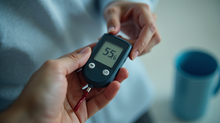Diabetes and travel: Bon Voyage!
- Maureen Sullivan
- May 14, 2017
- 2 min read
Summer will soon be here, and with it comes ample opportunity for vacation travel. Although vacations are ideally a time to rest, and relax, the truth is that most vacations can also bring changes in activity, meals and sleep patterns. For persons with diabetes, these changes can affect blood sugar levels. Fortunately, a little preplanning can minimize disruptions in your diabetic regimen, reducing the risk of diabetic complications.
Medications
Be sure and pack all needed medications (tablets, insulin syringes, glucose meter and lancets). Bring extra medications- in your carry-on luggage- and copies of your prescriptions, insurance card and medical emergency contact information. If at all possible, find out ahead of time where medical care is available at your travel destination.
Travel by car
Pack a portable cooler with fresh fruits and vegetables, as well as bottled water and other healthy options. Schedule frequent stops, which allows you to get out and walk around (lowering your risk of developing blood clots in your legs).
Air travel
If you traveling into different time zones, be aware your meal times and sleep times may be altered. You may need to check your blood sugar levels more frequently, until your schedule is adjusted to the time difference. Eastward travel means a shorter day. If you inject insulin, less may be needed. Westward travel means a longer day, so more insulin may be needed. Check with your medical provider or diabetic educator for more information on how best to adjust insulin dosing.
Keep your medications with you (instead of placing them in your checked in luggage). Pack healthy snacks to take on the plane with you, to cover any delay in meals. Finally, if you are wearing any diabetic monitoring devices (continuous glucose monitoring devices or insulin pumps), notify the airlines ahead of time to alert security officials. You can opt for a manual pat down instead of going through the security detectors.
Emergency Care when abroad
According to the American Diabetes Association (http://www.diabetes.org/living-with-diabetes/treatment-and-care/when-you-travel.html), you can “get a list of English-speaking foreign doctors from the International Association for Medical Assistance to Travelers (IAMAT), 1623 Military Road, #279, Niagara Falls, NY 14304 (www.iamat.org). IAMAT can be reached at 716-754 4883. If an emergency occurs while you're traveling and you don't have such a list, contact the American Consulate, American Express, or local medical schools for a list of doctors”.
With planning and preparation, your vacation can be filled with fun and festivities. Take control of your diabetes and have a wonderful summer. Bon Voyage!




































Comments